The summer sun in Tucson can be brutal. As everyone knows, during this time of year you run from air-conditioned car to air-conditioned building, and the best parking spot is the one in the shade.
If you want to spend time in your Tucson yard or garden during these hot summer months, you’ll want to add some kind of shade to make the time outdoors bearable (and to protect yourself from UV rays)!
In this article, we go over several options for adding shade to your yard so that you can enjoy your outdoor space.
Patio Umbrella
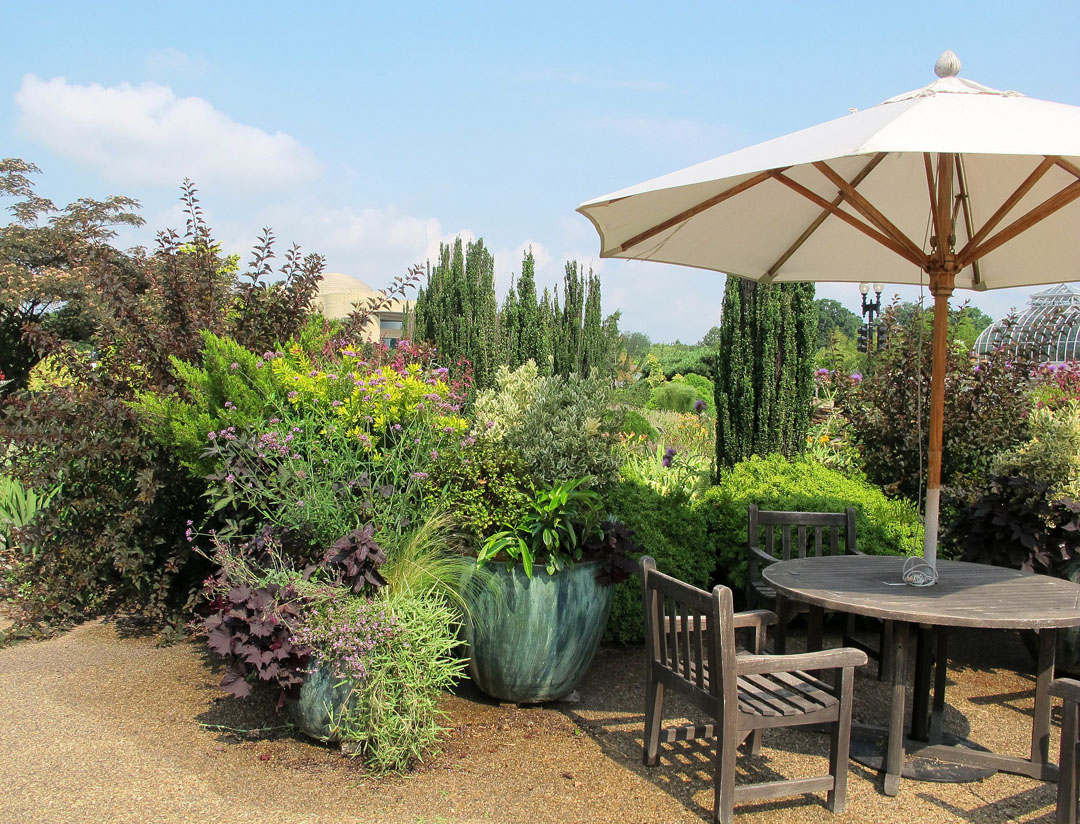
A patio umbrella provides shade in a botanical garden.
By DC Gardens – U.S. Botanic Garden in July, CC BY 2.0, https://commons.wikimedia.org/w/index.php?curid=67850151
By far the easiest, quickest, and smallest solution is to add a patio umbrella to your yard. Some come with tables and patio furniture, others are stand-alone options. Most are adjustable so that you can tilt the umbrella to get the most shade.
Keep in mind that monsoon rain and winds can be vicious, so if any kind of unusual weather is heading our way, be sure to close the umbrella and move it if needed, or the wind may just carry it over to your neighbor’s house!
Pop Up Canopy
Another temporary option is a pop up canopy. While we wouldn’t advise this for long-term use, they are great for parties, yard sales, craft fairs and the like.
Sun shade/ shade sails
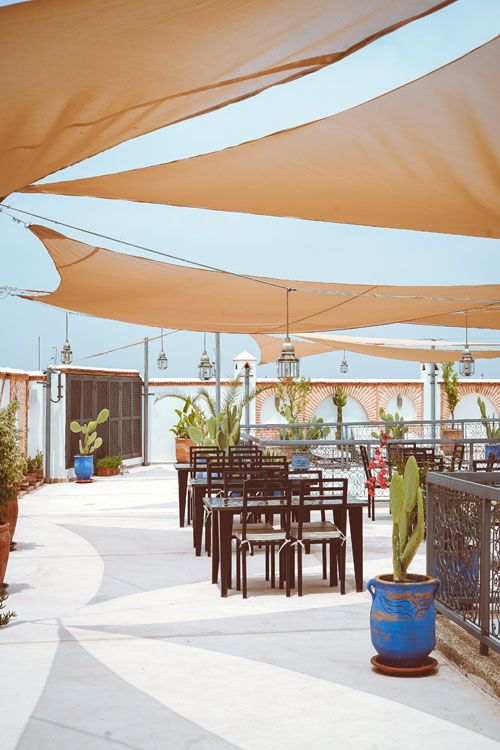
Sun sails come in different shapes and sizes, making them a great option for both large or small yards.
An increasingly popular solution for residences and businesses alike, shade sails (also called sun shades) provide shade but still allow air to pass through. They are available in a variety of sizes so can work for almost any area.
As these sails need to be anchored to something, be very aware of how sturdy a wall or structure is before attaching sails. You can read more about that in this article from Tucson.com.
You won’t need a building permit, but the city requires a zoning review for any installation. Here’s information about that from the article linked above:
“A sail of less than 900 square feet won’t require a building permit in the city of Tucson, but Ron Brown of Development Services said the city requires a zoning review for any installation. That involves bringing in a plan that shows the proposed shade’s location on a lot in respect to structures and property lines. “Come down to 201 N. Stone, go to the counter. A person at the counter will review it,” Brown said. He said there usually isn’t a long wait, unless they’re particularly busy.”
You also will need to check with your HOA, landlord, or neighborhood association to see if adding shade sails (or any kind of shade structure) is allowed.
Pergolas and Cabanas
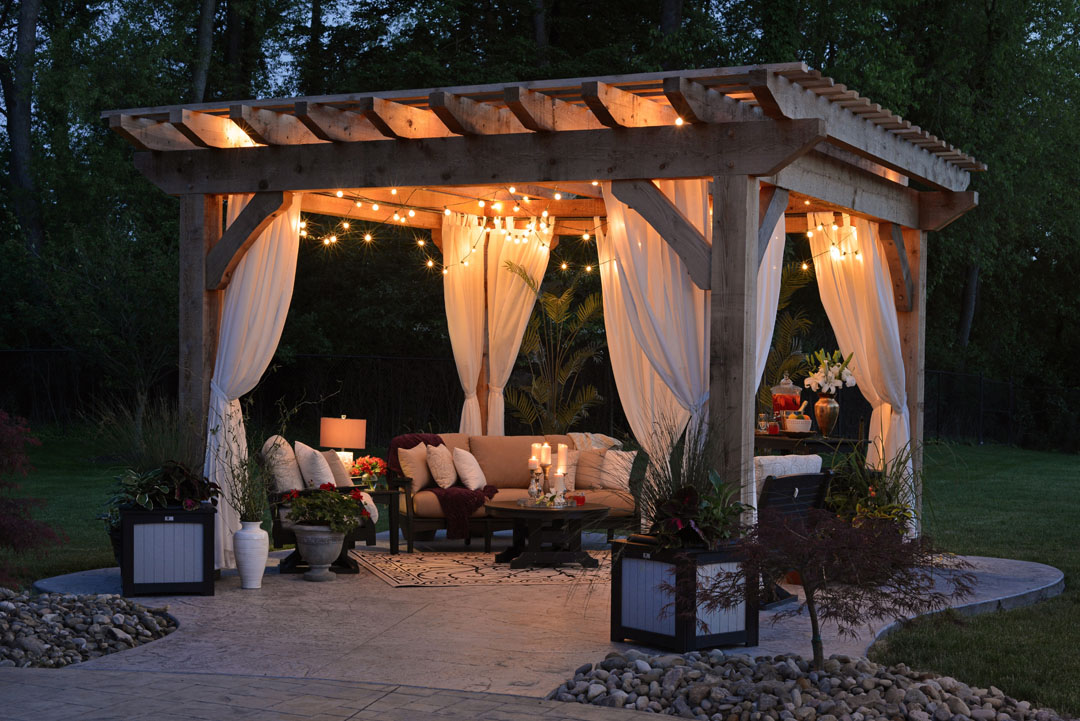
Pergolas are great as stand-alone structures. If you want more shade, you can add a cover or even curtains, like in this example
While different in design, pergolas and cabanas are similar structures.
Pergolas are often made out of wood (though other materials are available), and they add visual interest to your yard. With slats of wood instead of a flat cover, they offer broken shade, but you can add a fabric covering. Here in Tucson, you may have seen some pergolas made out of ocotillo fencing or other native natural materials.
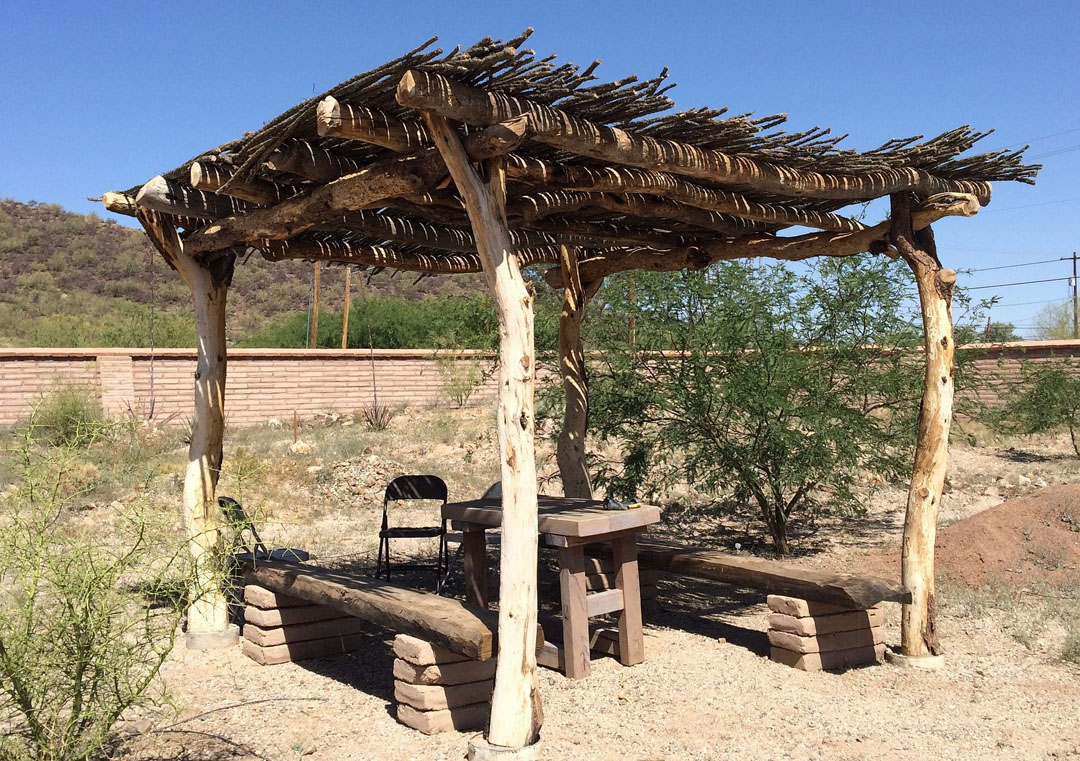
This ramada (similar to a pergola) is made out of native materials. Note the ocotillo roof and the mesquite timbers.
Some pergolas come with shade cloth or curtains (or you can buy these retractable ones), or you might want to try to create natural shade with various kinds of vines. It will take a bit longer, but we think the time and effort is worth it!
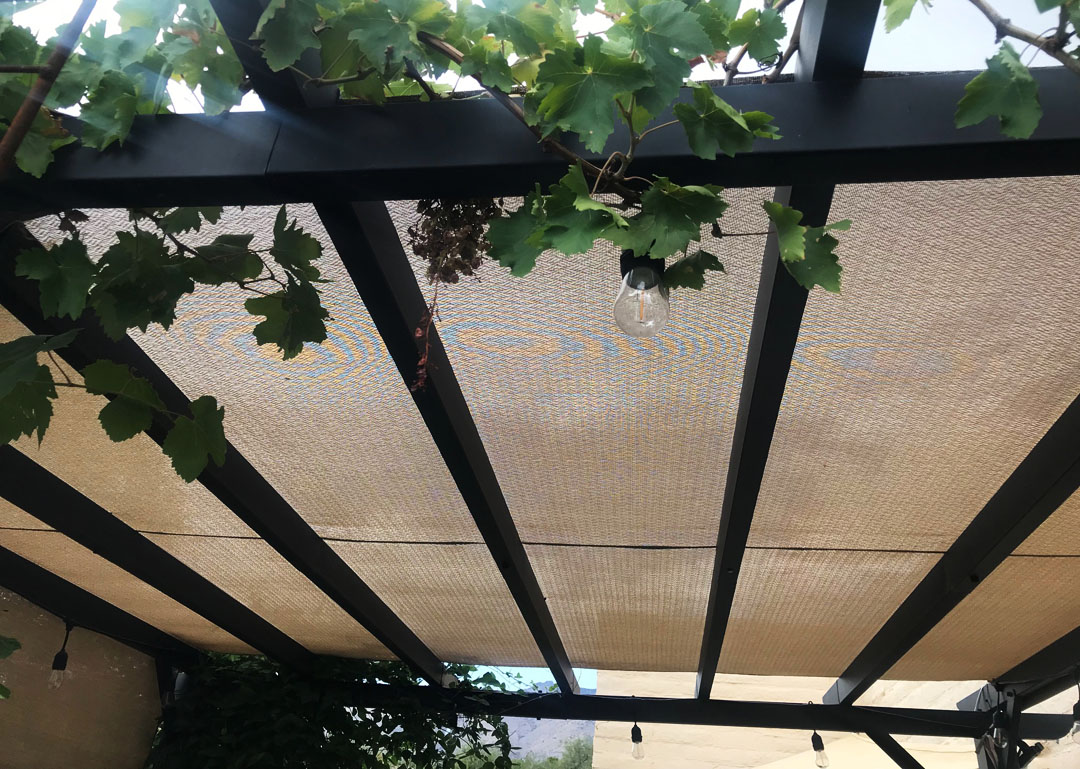
This pergola has a shade cover but also has a vine growing for added interest and shade
You can get a lattice shade cover, which has the top of a pergola but can be built right off of a home (over a patio, for instance).
You’re probably used to seeing cabanas near swimming pools, but these small structures can have multiple purposes. They usually have some kind of curtain on all four sides so that they have an added level of privacy. Depending on the size, cabanas can provide sun protection as you laze on a lounge chair, or they can be big enough for a dinner party to gather underneath.
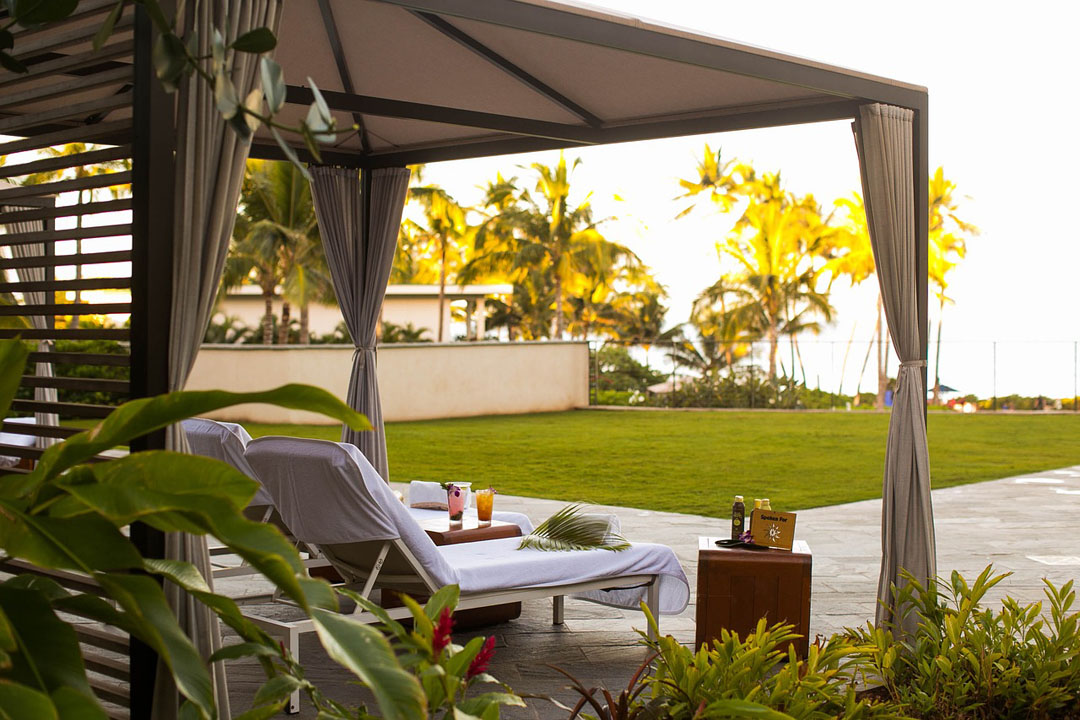
Cabanas are great for yards with pools – or without! Who wouldn’t want to lounge in a cabana in their backyard?
Canopies and retractable awnings
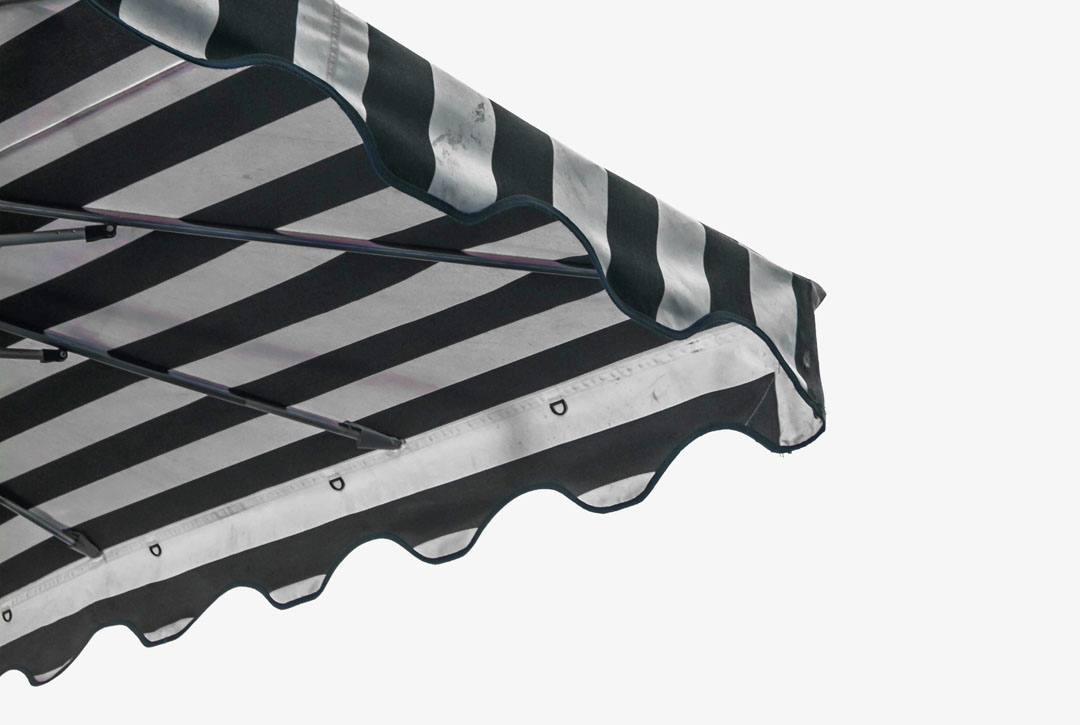
Retractable awnings are most often associated with businesses and storefronts, but they are becoming increasingly popular for homes
Canopies are usually used to provide shade over windows, but they can also be used over patios and doorway areas. You might be most familiar with them in commercial settings such as restaurants or storefronts, but they can be used on residential properties as well.
Awnings are also used over windows and doorways, but there are now retractable awnings available, which can be used to shade patios. The nice thing about retractable awnings is that you don’t need poles or a structure to hold them up – although that is a design possibility. The awnings can be retracted during the winter months and then extended during the summer, blocking the sun and heat and saving on electricity costs.
Patio curtains and rolling shades
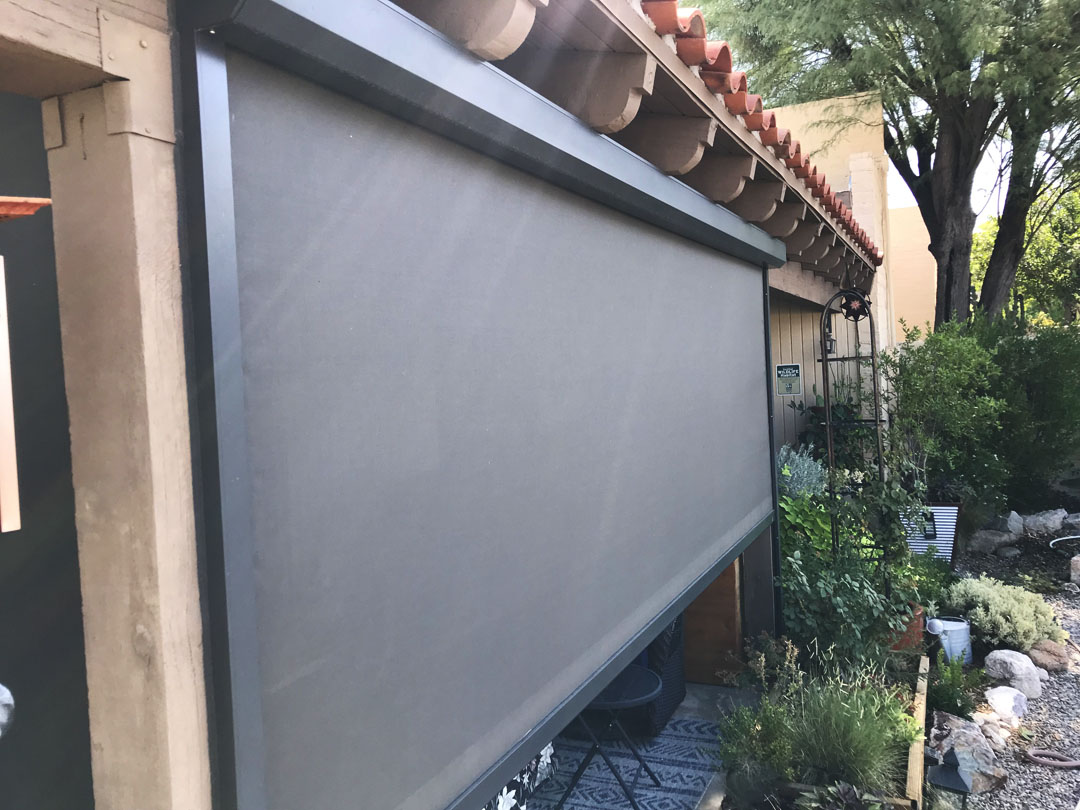
Rolling shades block sunlight and cool your patio without blocking your view
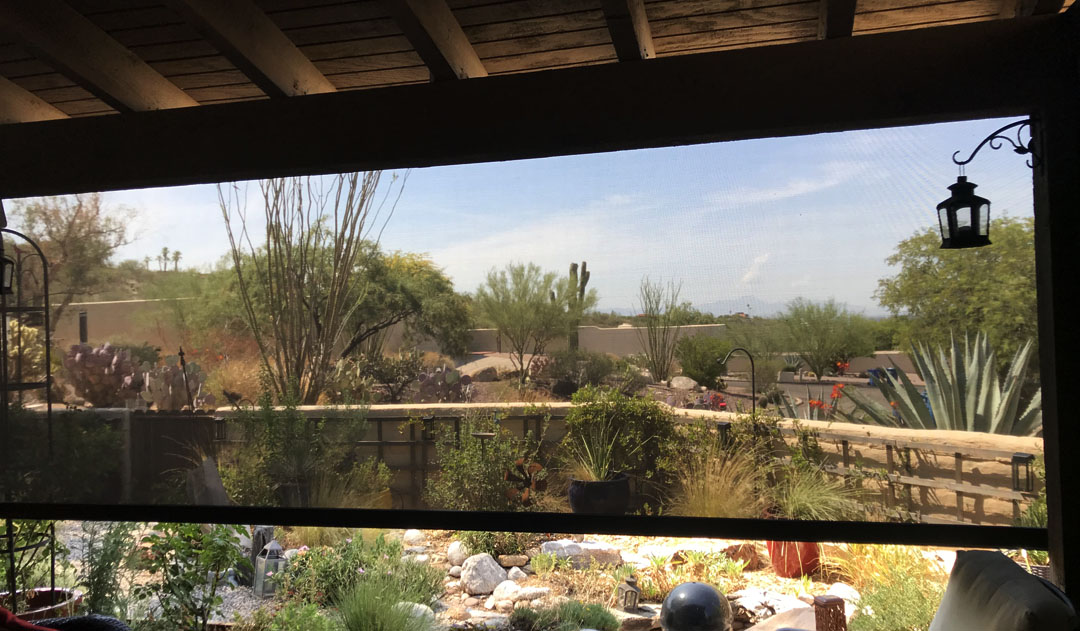
Rolling shades block the sun but not the view!
If you already have a covered patio, you can add some additional shade elements to protect from the sun and heat. Patio curtains add elegance and privacy and rolling shades allow you to see the view while restricting harmful UV rays and lowering the temperature.
Native shade trees
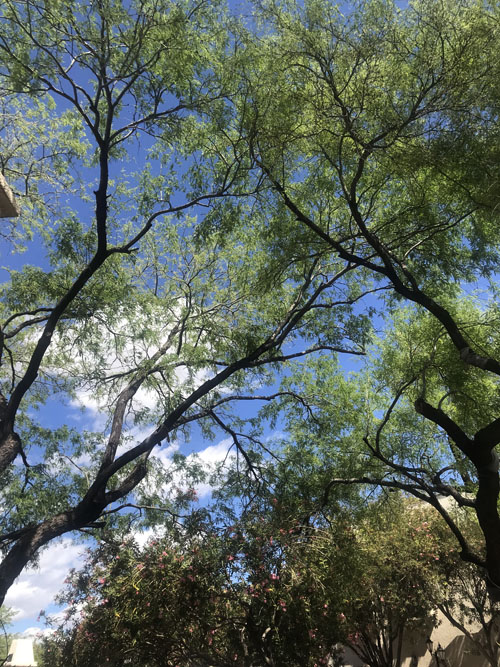
Native shade trees not only block the sun, they cool the area through transpiration
Our favorite solution, by far, is to plant shade trees. Here’s just one of the reasons: trees not only provide shade, they actually cool down the air because of the water released from their leaves. Depending on where you plant them (south or west side is recommended), they can also shade your home and reduce your TEP bill!
Here are some options for shade trees to plant in your yard:
- Arizona or Velvet Mesquite – needs space to stretch, note that it does drop pods
- Desert Willow – known for its beautiful trumpet-like flowers; it grows to 25 tall and 20 feet wide, so it will fit in smaller yards
- Palo Blanco – 20 ft tall, 10 ft wide, white lacy bark
- Blue Palo Verde – our Arizona state tree grows to 30 ft tall and 30 ft wide and is known for its green bark and bright yellow flowers in the spring
- (Not native) Chinese Pistache – look for the cultivar “Sarah’s Radiance,” which has red full color. Grows 25-40 feet tall and 25-30 feet wide
For other shade tree options, check out this guide.
You can order a low-cost shade tree from TEP’s Trees for You program. TEP customers can order up to three 5-gallon shade trees for $5 each from September 1 until May 31. More information here.
Tucson Clean & Beautiful Inc. also offers trees for sale at the reduced price of $25-$30.
Another option is to plant taller plants and bushes for shade. While they won’t protect you from the harsh mid-day sun, they can help provide shade other times during the day and can increase privacy. As previously mentioned, vining plants can also be a great way to add natural shade to your yard on a pergola or other structure.
For something a little different, check out this vertical garden idea from HGTV using fabric pocket planters.
Depending on your yard, your budget, and your shading needs, there are a variety of ways to add shade to your yard. Be sure to check out our shade category for local Tucson companies that sell various shade products, and let us know how you’ve incorporated shade into your yard!